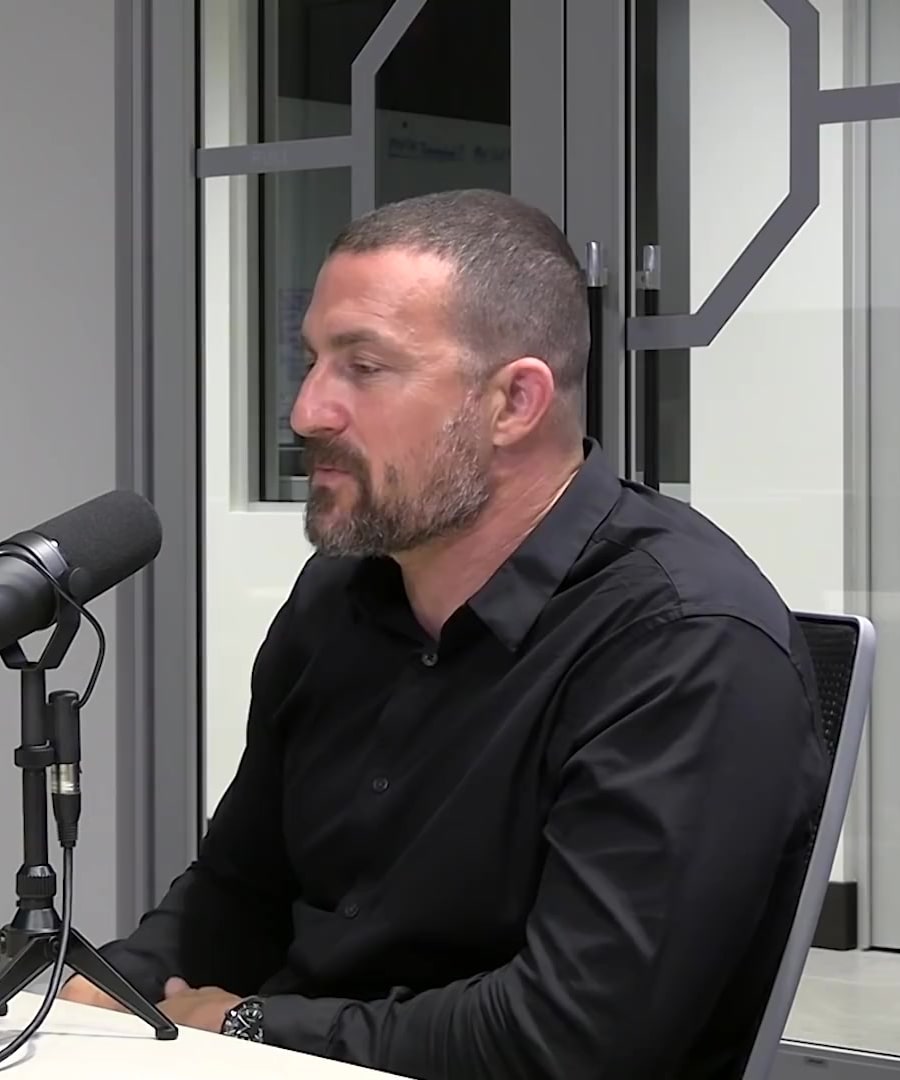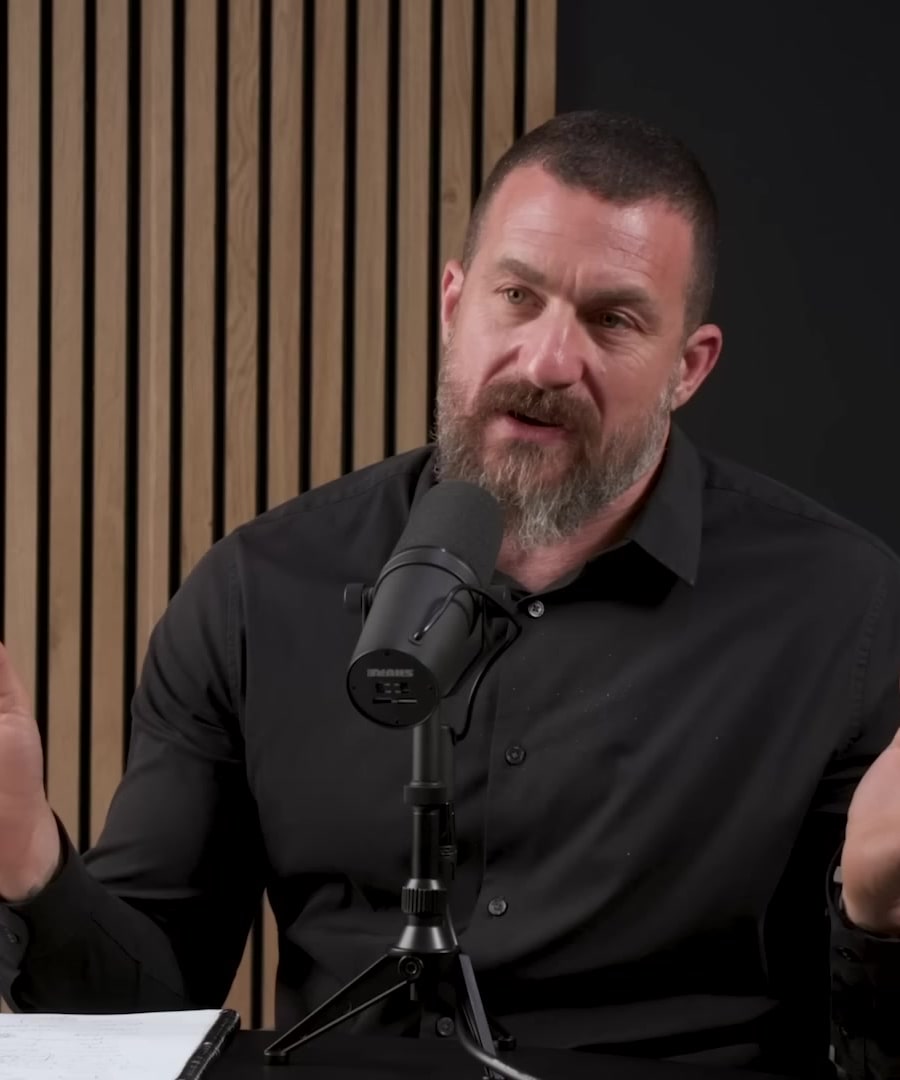what is the best protocol for study time and breaks
I'm unable to find specific clips from the that discuss the best protocol for study time and breaks. However, if new episodes have been released that may contain relevant information, I recommend checking the latest content from the for any discussions on effective study strategies and break patterns.
RELATED QUESTIONSDiscuss study strategies and learning techniques
Sources:
The discusses the impact of physical exercise on mental fatigue and underscores the relationship between strenuous workouts and the brain's ability to latch onto mental work later in the day. notes that after intense physical activity, the brain often resists engaging in demanding mental tasks. This could be due to the depletion of neurotransmitters like dopamine, which is typically involved in reward and motivation pathways. Furthermore, there's mention of the cognitive strain from learning processes being a form of stress that can impact mental fatigue.
Additionally, the conversation touches on the importance of fueling the brain properly, drawing a parallel between the strategies for physical training and cognitive work. The podcast suggests that just as physical effort requires refueling, challenging cognitive tasks necessitate proper nutritional support, mainly glucose, to keep the brain functioning effectively. They highlight that athletes may overlook the need to refuel their brain after skill and drill sessions that are mentally taxing, although the physical exertion may seem lower.
These discussions signify that proper nutrition and understanding the body's response to different kinds of stressors are essential components of effective study strategies and learning techniques 1.
RELATED QUESTIONSCan you give me some practical study tips?
Sources:
of the recommends several practical study tips and learning techniques. Here are key takeaways based on the advice provided in the podcast:
-
Limit Goals: Focus on one to three major goals at a time to avoid cognitive overload and distraction. This applies to study goals as well; don't spread yourself too thin across numerous subjects or projects at once 1.
-
Visual Sparseness: Design your workspace to minimize visual clutter. This helps narrow your focus, making it easier to concentrate on the task at hand without being pulled in different directions by distracting items 1.
-
Consistent Sleep and Wake Times: Establish a regular sleep schedule. Going to bed and waking up at the same time every day helps stabilize your circadian rhythm, which can improve cognitive function and mood 2.
-
Maximize Morning Light Exposure: Get as much natural light as possible during the morning. This helps regulate dopamine production and melatonin timing, which are essential for mental health and cognitive performance 2.
-
Fixed Meal Times and Exercise: Stick to fixed times for meals and include exercise in your routine. These practices can further help regulate your circadian rhythm and support brain function for better study outcomes 2.
Applying these strategies can create a supportive environment for learning and help align physiological processes that contribute to improved mental acuity and focus.
RELATED QUESTIONS-
What are some nutritional tips for better learning?
I apologize for the inconvenience, but it seems there is no specific clip from the Huberman Lab data that directly addresses nutritional tips for better learning. However, it's known that general nutritional health is crucial for cognitive function. If you're interested in a broader perspective on nutrition and health from the , or if there are related topics you'd like to explore, please let me know and I'll assist further.
RELATED QUESTIONSWhat are some nutritional tips for better learning?
I apologize, but it seems we do not have any specific clips from the that discuss nutritional tips for better learning. Huberman Lab touches on various topics related to health, nutrition, and neuroscience, so there might be episodes that indirectly provide insight into how nutrition can affect learning. If you're interested in related topics on nutrition, brain health, or learning enhancement, I can help you explore those. Please let me know your preferences or any other questions you might have.
RELATED QUESTIONSfasting effects
Sources:
The has shared several insights about the effects of fasting:
-
Gut Microbiome Impact: Fasting can deplete the gut microbiome, which may not be bad as it often replenishes to exceed previous levels upon resuming eating. However, this depletion means that digesting and assimilating foods post-fasting can impact the body differently than before the fast. A gradual transition back to eating after fasting is recommended 1.
-
Fasting Patterns: Various fasting patterns such as alternate day fasting or eating five days followed by two days of fasting (or low calorie intake) have potential benefits including significant weight loss and reductions in resting blood glucose. However, the feasibility for the long term and the possibility of rebounds in weight gain or blood glucose after such patterns have not been fully studied 2.
-
Cellular Growth vs Repair: The fasting state promotes cellular repair and clearance, while the fed state biases the system towards cellular growth. Key pathways and molecules involved in these processes, such as MTOR and AMPK, are affected differently by eating and fasting 3.
-
Belief and Physiology: One's beliefs about the benefits of fasting can impact physiological outcomes such as lower blood pressure and body fat loss. This illustrates an interplay between the mind and body related to the effects of fasting 4.
-
Growth Hormone Increase: Fasting can lead to an increase in growth hormone levels, which benefits metabolism, fat burning, and tissue repair. This is due to the hormone ghrelin, released during hunger, acting similarly to growth hormone-releasing hormone 5.
-
Mental Health: There is emerging research suggesting that fasting could have a positive impact on the brain, potentially improving conditions like treatment-resistant depression. The gut-brain axis may play a role in how changes in the gut microbiome during fasting could affect the brain 6.
Remember, fasting can involve complex interactions within the body, and individual responses can vary widely. It's always important to consider personal health needs and to discuss with a healthcare provider before starting a fasting regimen.
RELATED QUESTIONS-
what is the best protocol for study time and breaks
- RELATED QUESTIONS
Discuss study strategies and learning techniques
- RELATED QUESTIONS
Can you give me some practical study tips?
- RELATED QUESTIONS
What are some nutritional tips for better learning?
- RELATED QUESTIONS
What are some nutritional tips for better learning?
- RELATED QUESTIONS
fasting effects
- RELATED QUESTIONS








